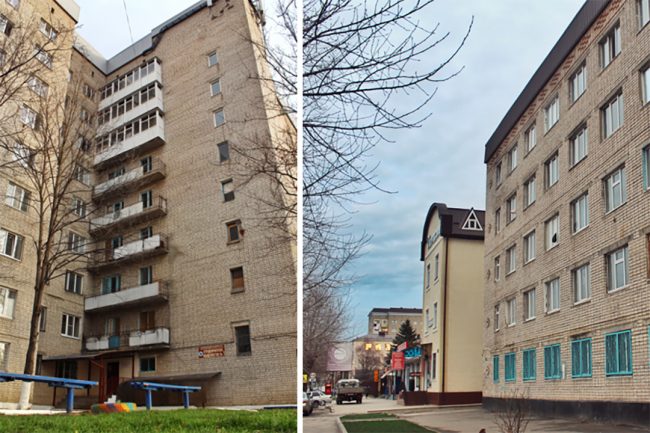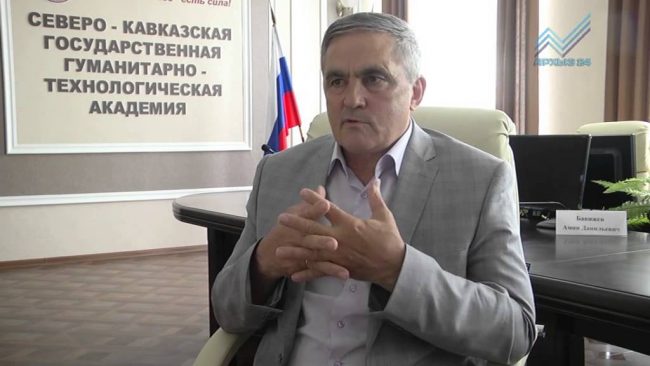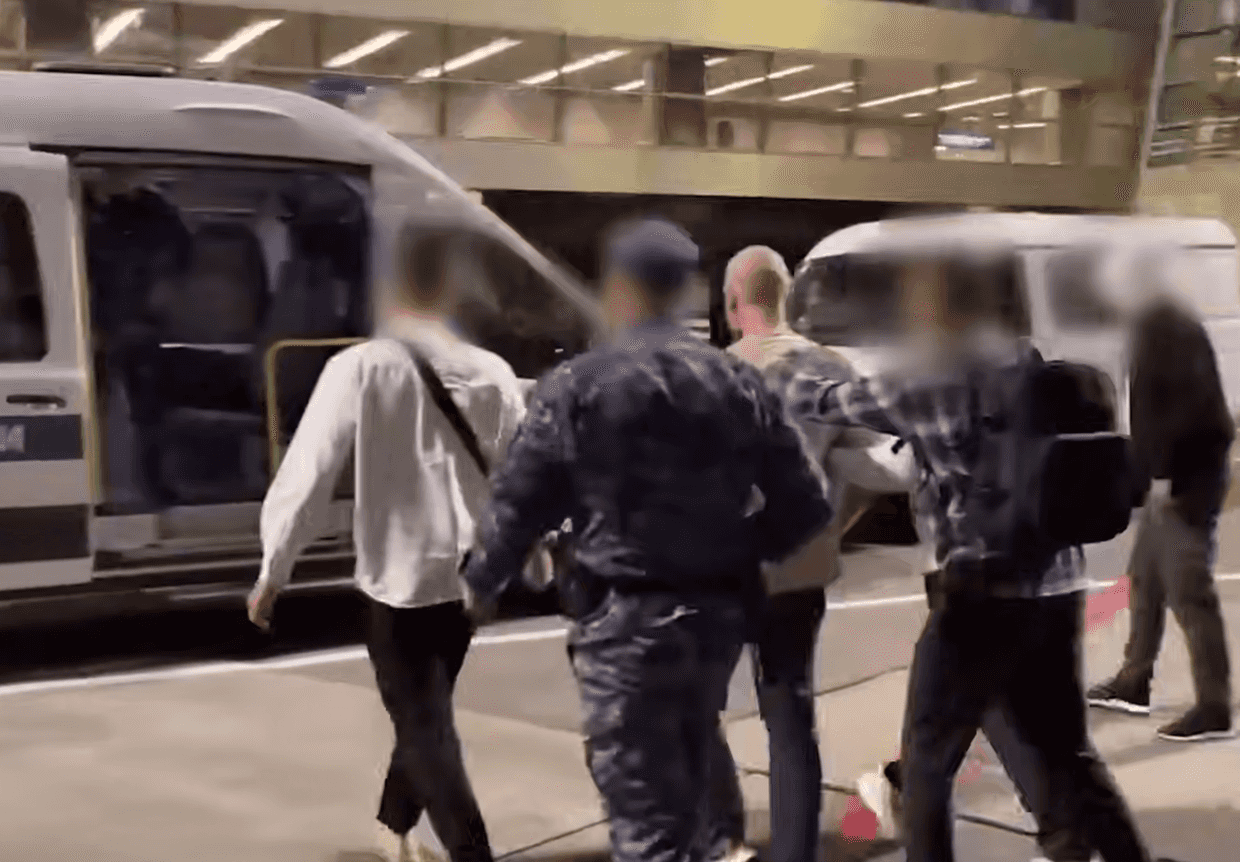

The administration of the North Caucasus State Academy in Cherkessk, the capital of the Russian Republic of Karachay–Cherkessia, is attempting to ‘illegally evict’ former teachers and staff and their families from their homes, a number of families have told OC Media.
A number of residents of the academy dormitory, many of whom are retired and have lived in the building for over 30 years, have also accused the administration of illegally hiking their utility rates.
Lyudmila Sinelnikova and Tamara Uzdenova (name changed), two residents of the dormitory facing eviction, told OC Media that it was clear the head of Karachay-Cherkessia, Rashid Temrezov, had given the academy’s rector, Ruslan Kochkarov, carte blanche on the issue.
They said that more than a dozen appeals from residents to various state institutions and the press had been left unanswered.
Vera Moldovanova, a member of the Karachay–Cherkessia’s Civic Chamber, told OC Media that the academy’s dormitory was federal property and that the university administration provided rooms in the dormitory for employees who were waiting for social housing.
Russia’s Civic Chamber is a state-financed institution ‘to protect [citizens’] rights and freedoms in the process of shaping and implementing state policies’.
According to Moldovanova, as construction of new social housing had been put on halt in Karachay-Cherkessia, many people were forced to stay in the dormitory permanently after waiting for their own housing for ‘more than 10 years’.
One employee of the academy, Natalya Bondarenko, told OC Media that appeals to the mayor’s office for housing were dismissed outright and that they were told the authorities ‘do not have the capacity and means to provide us with [alternative] housing, even in the distant future.’
She said that living in dormitory ‘we have already accepted the fact that at least we have such a roof over our heads.’
Bondarenko, who fled the war in Chechnya after losing her family home, said that after marrying a fellow student they were assigned a room in the dormitory.
‘When we got married, we received a permanent residence permit at the dormitory. The corresponding mark is in my ID. Our two children live with us’.
‘He wants to evict the Academy veterans’
According to Bondarenko, all the tenants now being threatened with eviction had been permanently registered in the dormitory for over 30 years.
According to Russia’s Housing and Communal Code, if a tenant was registered in the dormitory of the institution before 2005, the municipal authorities are not entitled to evict them after they graduate or stop working in the organisation.
Tamara Uzdenova, another resident of the dormitory, told OC Media that court proceedings were still ongoing. According to her, both judges and prosecutors had tried to ‘convince’ tenants to sign settlement agreements before the summer of 2019.
According to Uzdenova, residents were given an ultimatum: ‘If you do not sign the settlement agreement, we will evict you immediately, but by signing them, you will have until June 2019 to find a new housing’.
She said that, according to the law, they cannot be evicted without being provided equal alternative housing, but that the judges and prosecutors had told them if they did not sign the settlement to leave voluntarily, they would be moved to accommodation in the dormitories of only 6 square metres per person.

Uzdenova said that the rector had exerted ‘constant psychological pressure’ on elderly teachers who had worked all their lives in the academy.
‘Kochkarov wants to evict the veterans of the academy. But they all have a permanent residence permit, these rooms in the dorm are their only accommodation, which they have conscientiously paid for, for many years’, said Uzdenova.
Lyudmila Sinelnikova, who has been living in the dormitory for about 30 years, told OC Media five families had already been evicted.
‘Shortly before the eviction, [the rector] persuaded them to sign amicable agreements according to which the tenants were obliged to move out of their housing after 1 year.’
‘Extra charges’ for utilities
Residents also told OC Media that the academy administration had arbitrarily hiked utility bills several times.
According to the Decree of the Government of Russia, utility bills can only be raised once a year — in July. However, residents claim that the academy administration increased payments several times a year, including retrospectively.
In July, tenants wrote a collective appeal to the Department of State Housing Surveillance of Karachay–Cherkessia. It stated that: ‘in May 2018, all residents received three different documents showing different bills for the same period — from January 2018 to May 2018’.
Residents said the administration had also added the use of communal buildings that have long been unsuitable for use — the gym, basement, former utility rooms, etc. to the utility bills.
Uzdenova says that a bakery was set up in one of the communal buildings.
‘It’s not the bakery owner who pays for the electricity consumed by the bakery, but the residents of the dormitory’ she claimed.
Raya Uzdenova, a pensioner who lives in the dormitory, told OC Media that her home is 32 square meters, and yet she is billed for 50 square meters. She said other tenants were similarly being overcharged.
Vera Moldovanova, a member of the Civic Chamber of Karachay–Cherkessia, told OC Media that an inspection carried out by the authorities ‘established gross violations’ in overcharging tariffs for housing and utility services.
She confirmed that tenants were made to pay for services that they do not receive, including for premises they do not occupy.
‘These increases in payments by the administration are explained as a payment for the use of communal property, which is not true’, Moldovanova said.
A source in the mayor’s office of Cherkessk told OC Media that local media often does not pick up such stories as the local authorities influence their agenda.
The source said that appeals to higher institutions are usually simply returned to the ministries and departments accused of being at fault with a note to ‘solve urgently’.
The rector of the North Caucasus Humanitarian and Technological Academy, Ruslan Kochkarov, did not respond to repeated requests for comment.









